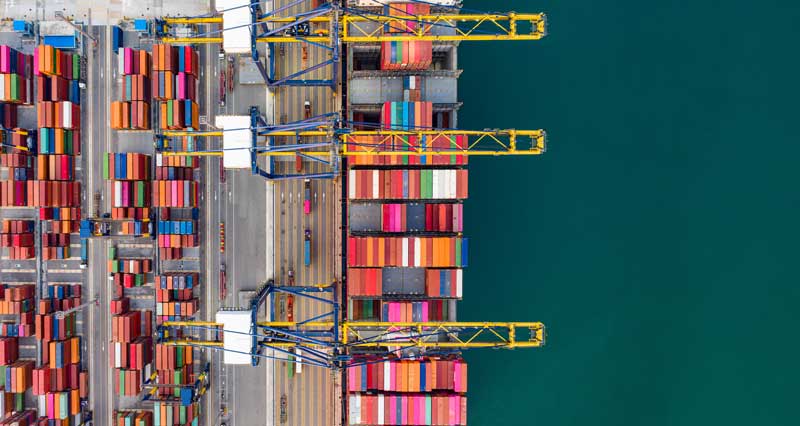In the world of global commerce, few sectors shine as brightly as the manufacturing industry does. With its intricate web of production processes, supply chains and logistics complexities, manufacturing fuel economics, drives innovation and shapes societies worldwide. Let’s focus on the manufacturing industry and how important logistics is for their success.”
Manufacturing industries also known as the pillar of success:
Manufacturing industries encompass a vast array of sectors, from automotive and electronics to pharmaceuticals and consumer goods. These different sectors all have one common goal: to efficiently transform raw materials into finished products while maximizing profitability.
Factories all over the world are busy with various tasks. They provide jobs for millions of people. They also create trillions of dollars in economic value for the entire world.
Innovation remains central to manufacturing, with ongoing technological advancements reshaping processes and products. Automation, robotics and artificial intelligence have changed the whole world of production by increasing the efficiency and the precision. Additive manufacturing, popularly known as 3D printing, has emerged as a disruptive force that offers new possibilities in prototype, customization, and decentralized production.
Moreover, sustainability has become a driving force within the manufacturing industries. Companies are increasingly adopting new eco-friendly practices, optimizing resource use, reducing waste and embracing renewable energy resources such as solar energy. Sustainable manufacturing not only benefits the environment but it also increases the reputation of the brand and it also attracts environment conscious customers.
The importance of logistics in manufacturing industries:
Behind the scenes of every successful manufacturing operation lies a well oiled logistical machine. Logistics includes encompassing transportation, warehousing, inventory management and also distribution; these all combine to form the backbone of the manufacturing supply chains. Efficient logistics lead to quick sourcing of raw materials, smooth production, and timely delivery of finished goods to consumers.
Transportation is a key part of manufacturing logistics that helps connect suppliers, factories, and markets over long distances. Whether by land, sea, or the air, goods traverse global networks, guided by intricate supply chain strategies. A just in time delivery system helps reduce inventory costs. Advanced tracking technologies give real-time updates on cargo movement from anywhere.
Warehousing and inventory management are equally vital components of manufacturing logistics. Warehouses serve as a hub for the storage of raw materials, work in progress inventory, and also finished goods. Strategic location selection, optimized storage layouts, and streamlined inventory tracking enhance efficiency and reduce costs of the process.
Moreover, digitalization and the process of automation are transforming the old warehouses into new smart facilities, capable of autonomous operations and predictive analytics.
Distribution channel ensures that manufactured products reach the end consumers with the utmost efficiency and reliability. From wholesalers to retailers to e-commerce platforms, diverse channels cater to varying market demands. Efficient distribution networks minimize lead times, it also reduces the stock outs and also enhances the customer satisfaction. Furthermore reverse logistics manage product returns and recycling, closing the loop on sustainability efforts.
Overall, the manufacturing industry is at the forefront of innovation and progress, constantly working towards greater efficiency and excellence. Manufacturing industries are shaping the world with the help of logistics. They are creating connections, adding value, and leading us towards a better future every day.

